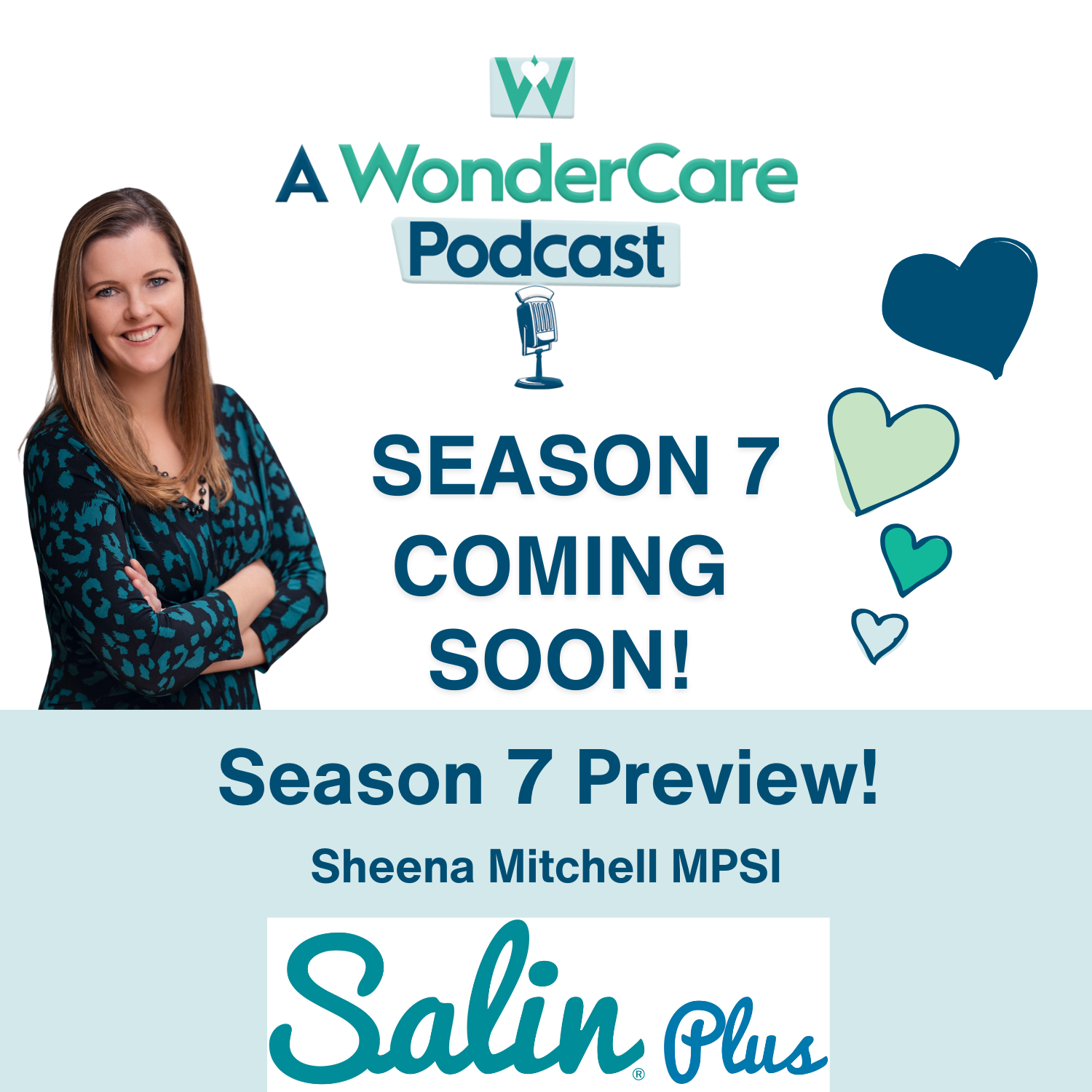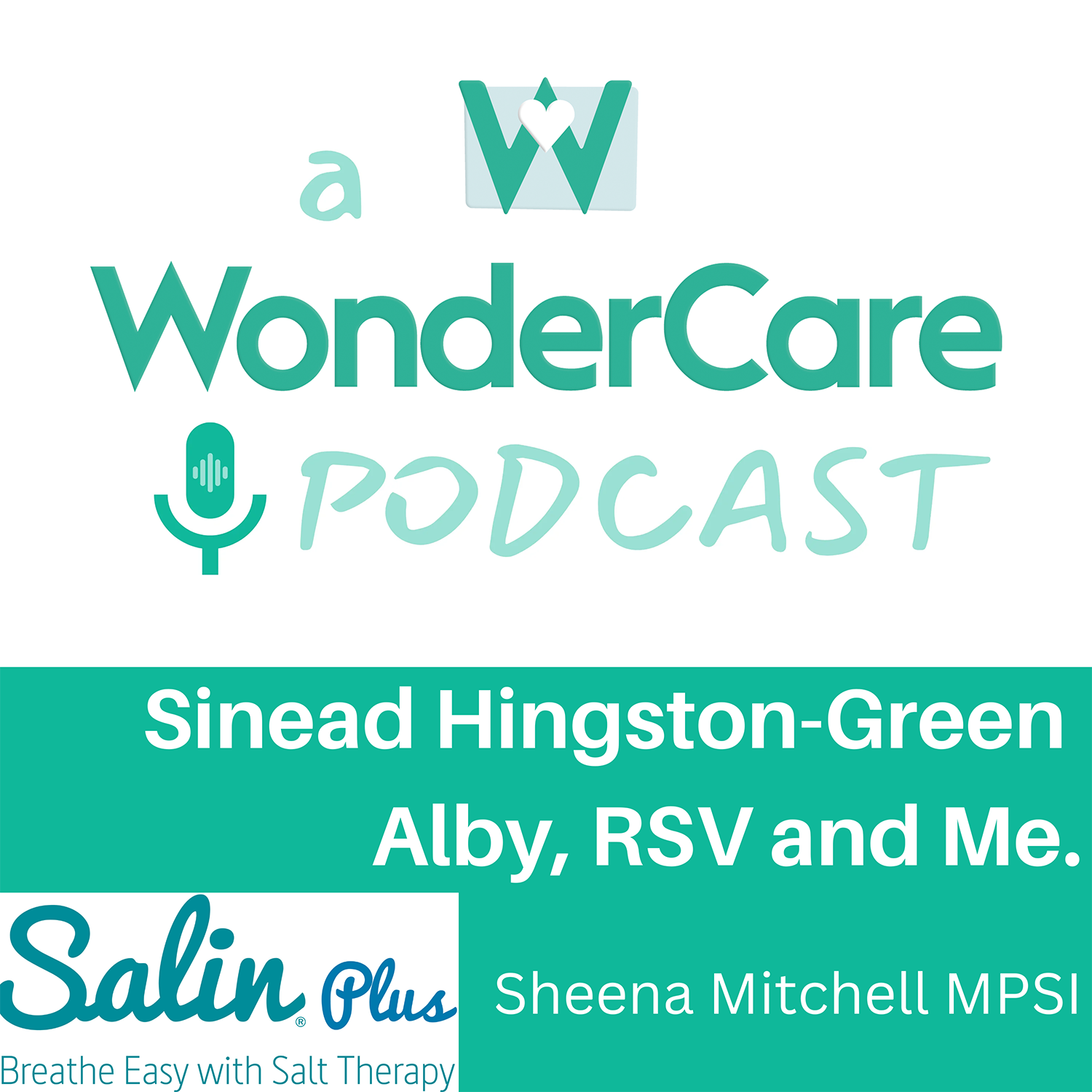Episode Transcript
[00:00:06] Speaker A: Hello and welcome to a Wonder Care podcast. I'm Sheena Mitchell, a pharmacist and mum of three. I combine healthcare and practical advice to support you on your parenting journey. This week I'm talking all about RSV and bronchiolitis. Bronchiolitis is one of the leading causes of hospitalization in children in the zero to four year age group. RSV is the respiratory sensual virus. Infection with RSV can cause inflammation and irritation of the bronchioles, which are the small little airways in your baby's lungs. The lungs are obviously a vital part of delivering the right amount of oxygen to your baby's bloodstream, which allows them to continue with healthy bodily function. When RSV infection is present, the bronchioles become really inflamed and irritated and it can make it really difficult for your child to breathe. There are certain children that would be more at risk of ending up in hospital from an RSV infection, and those are babies that were born prematurely, babies or children with respiratory disease, babies or children who suffer with immune issues, and some others. Bronchiolitis is a condition which describes inflammation and irritation in your baby's lungs, and RSv is the leading cause of this. Before I go any further, I thought it might be useful for you to hear what a bronchiolitis cough sounds like, so have a listen to this sound, but obviously it is not intended to help with diagnosis at home. If you have any concerns about your child's health, remember to see their gp.
So as you can hear there, the cough is persistent and dry. It can sometimes be so deep in their chest and so irritating that it can almost sound like there's mucus down there. If you put your hand on your baby's chest, you'll feel the cough and crackling happening on their chest. Children with bronchiolitis often have a runny nose. In about 30% of cases, they'll also have fever. Of course, like many illnesses, it can be hard to feed a baby when they're suffering with bronchiolitis, especially for a few days after the illness. In severe cases, your child may have difficulty breathing and may be wheezing.
The treatment of bronchiolitis is similar to a cold in that there's no direct treatment to kill the virus. It's really all about treating the symptoms. It usually clears itself up within two weeks, and in most cases, a lot of minding and lots of extra attention at home is enough to take care of it. If you're able to continue to take care of your child at home, I recommend keeping an eye on them. This is one of the only times that I advise setting an alarm to actually wake you up in the middle of the night so that you can go in and check on your baby. The good news is you don't really have to wake your baby. You can go in and assess their breathing by watching their chest and listening to their breaths. You want to ensure that their breathing is normal, that it's not too fast and it's not too labored. When you're feeding your baby, try and do it in the upright position. This makes it easier for them to breathe while feeding. Remember that in bronchiolitis, your baby will often have nasal congestion. So using something like a saline nasal spray before feeding them can help them to take their feed a little bit better, because obviously they'll be breathing through their nose while they're feeding. Try and keep your child hydrated and keep an eye out for the signs of dehydration. Simple things like keeping an eye on the little soft spot on the top of your baby's head, making sure that's not sunken, making sure that they're having regular wet nappies, and keeping an eye on how much they're drinking. Obviously, it's trickier if you're breastfeeding, but you should be able to kind of see if you've got way more supply than they're actually taking. That might indicate a drop in demand. Another sign of dehydration is when your baby is crying with no tears. Keep an eye on their fever, and if you want to know how to treat that, check out my fighting fever podcast. It's there. It was released a few weeks ago. Other things to do are make sure that people who smoke stay away from your child, because smoking can really irritate the symptoms of bronchiolitis. Sometimes using a humidifier can be helpful. I use the medisana one at home and it's great. It runs overnight and it means that you're adding a bit of moisture to the air, which can help to soothe the airways. If your child suffers with regular coughs or you're worried about them picking up bronchiolitis, I definitely recommend the salon plus soul therapy device. It's no harm to have it on every night over the winter just to make sure that your child's lungs are as healthy as possible. This is particularly helpful in asthmatics who may have more mucus down in their lungs, similar for children with cystic fibrosis and other mucus causing conditions in terms of preventing bronchiolitis it can be tricky. There isn't a lot you can do, but we do know it's a virus that's circulating, and sometimes, no matter how hard you try to protect them, it's impossible. But with COVID we learned how to reduce viral transmission. So it's back to basics. Lots of hand washing for everyone. Babies, siblings, minders, lots of cleaning of the toys, keeping surfaces clean and keeping babies away from anyone with any kind of cough or congestion symptoms.
It's definitely good to know when you need to see a doctor. So if you're looking at your child and liken that sound bite, they are struggling to catch their breath, or if they're showing signs that they're not getting enough air and oxygen into their bloodstream, such as blue coloring around their mouth and lips, then absolutely, it's straight to an e. If they're not taking sufficient fluids and they're young, so that would be less than 50% of their normal feeds over the last two to three feeds. That's what's advised by the NHS in the UK. Then you should probably see the doctor. If they haven't had a wet nappy for 12 hours or more, or if they're extremely tired or irritable. If you're struggling to keep them alert and it's not the middle of a nap, you'd be reasonably expecting them to be alert if their form is really bad. And what I mean by that is, if you're struggling to get them to interact with you or respond to your normal laughs or clapping sounds, if they're just constantly falling asleep and it's not normally nap time, then that's something that you should look out for as well. Obviously, it's straight to a e. If there's any difficulty with the breathing or if they're particularly pale or sweaty, as I said a minute ago, if their lips are blue or their tongue or anywhere is turning blue, then that's absolutely an emergency sign. And also if they have long pauses in their breathing. So I suppose I recorded this episode not to scare you, but just to help be aware that, look, bronchiolitis, it is a virus, so unfortunately, antibiotics won't help. A lot of it can be treated at home, but for those really acute respiratory conditions, you may need medical assistance and it's just good to know what is something that you should go to the hospital about and what isn't. I do believe that gut instinct is really important. You'll never be in trouble for being concerned about your child's welfare.
[00:07:15] Speaker B: Thank you so much for listening. If you enjoyed this podcast, please follow or subscribe on Spotify or Apple Podcasts or wherever you get your podcasts and leave a review. A review really benefits the show. Thank you so much for listening. Talk soon.


